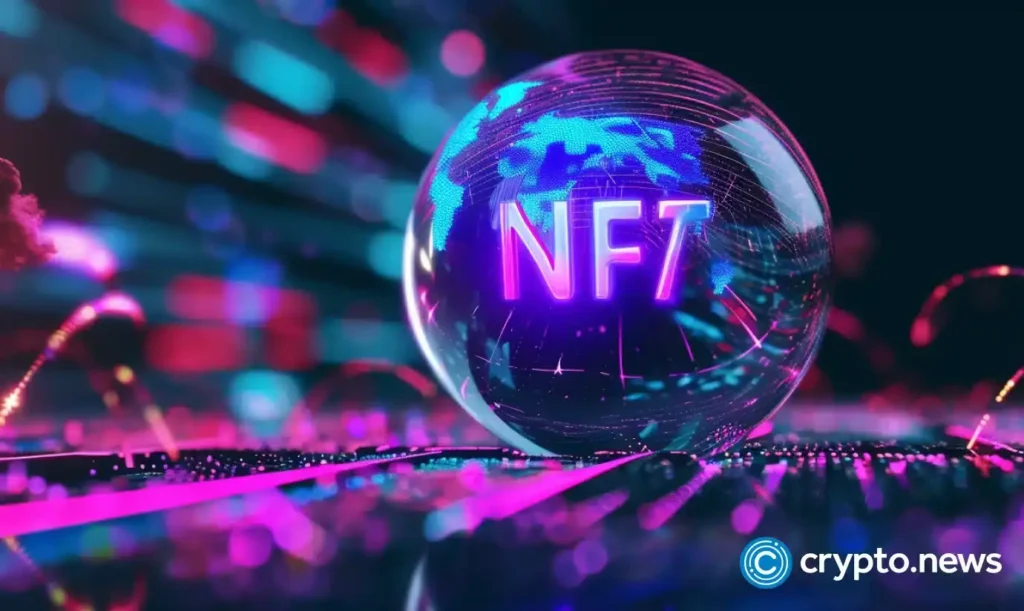Non-Fungible Tokens (NFTs) have skyrocketed in popularity in recent years, capturing the attention of artists, collectors, and investors alike. These digital assets, which are unique and indivisible by nature, have ushered in a revolutionary way to own, exchange, and value digital art and collectibles. Platforms for buying, selling, and trading NFTs, often known as NFT exchanges, are at the heart of this expanding ecosystem. This blog investigates the complexities of NFT exchanges, illuminating their functioning, relevance, and transformational impact on the digital and creative economy.

Understanding NFT Exchanges
NFT exchanges are digital marketplaces where creators, collectors, and traders can buy, sell, or exchange NFTs. These platforms form the NFT ecosystem’s backbone, ensuring secure and accessible transactions for unique digital items. Unlike traditional cryptocurrency exchanges that handle fungible tokens (e.g., Bitcoin, Ethereum), NFT exchanges specialize in one-of-a-kind assets like digital artwork, collectibles, and music.
The Mechanics of NFT Exchanges
Trading on an NFT exchange involves a few key steps. First, creators mint their digital creations as NFT on the blockchain. This ensures each item’s authenticity and ownership history are publicly verifiable. These NFTs are then listed on an exchange. Potential buyers can browse, bid on, or directly purchase them. Transactions on NFT exchanges are facilitated using cryptocurrencies, primarily Ethereum. Ethereum is chosen due to its widespread adoption and support for NFT standards like ERC-721 and ERC-1155.
Why NFT Exchanges Matter
NFT exchanges play a pivotal role in the digital economy. They enable creators to monetize their work directly and collectors to access a global market of unique digital items. These exchanges democratize access to art and collectibles, breaking down traditional barriers. Moreover, NFT exchanges contribute to a new value system for digital assets. Here, the provenance, scarcity, and ownership of digital content can be unequivocally proven and valued.
The Impact of NFT Exchanges on the Creative Economy
The advent of NFT exchanges has been transformative for the creative economy. Artists and creators who once struggled to profit from digital work can now find an audience and market for their creations. The transparent nature of blockchain and the secure trading environment provided by NFT exchanges ensure that creators can retain a greater share of the profits. Often, this includes royalties for secondary sales. This model benefits creators financially and encourages a more vibrant and diverse ecosystem of digital art and content.
Navigating the NFT Exchange Landscape
The NFT exchange landscape is varied, with platforms catering to different niches, mediums, and communities. Some exchanges focus solely on digital art. Others specialize in virtual real estate, gaming items, or even tweets turned into NFTs. Selecting the right platform depends on the user’s interests and the type of NFTs they wish to buy or sell. It also relies on the community they want to engage with. Popular NFT exchanges include OpenSea, Rarible, and Foundation. Each offers unique features and specializes in various aspects of the NFT market.
Challenges and Considerations
Despite their potential, NFT exchanges and the broader NFT market face challenges. Concerns over environmental impact, due to the energy-intensive nature of blockchain transactions, have sparked debate and calls for more sustainable practices. Additionally, the volatility and the speculative nature of some NFT investments necessitate a cautious approach. Potential buyers and sellers should conduct thorough research, understand the risks involved, and consider the long-term value of the NFTs they are interested in.
The Future of NFT Exchanges
As blockchain technology evolves and becomes more integrated into various sectors, the future of NFT exchanges looks promising. Innovations such as layer 2 scaling solutions and the adoption of more energy-efficient consensus mechanisms could address current limitations. This would make NFT trading more accessible and sustainable. Furthermore, as awareness and appreciation of digital ownership and provenance grow, NFT exchanges will likely continue to play a crucial role in shaping the digital art market and beyond.
Conclusion
NFT exchanges represent a significant shift in how we perceive, value, and trade digital assets. By providing a platform for the secure and transparent exchange of unique digital items, these marketplaces have opened new possibilities for creators and collectors, transforming the landscape of digital and creative economies. As technology and market mature, NFT exchanges will undoubtedly continue to evolve, offering new opportunities and challenges for participants in this exciting space
Navigating the world of NFTs and their exchanges offers a glimpse into the future of art, collectibles, and digital ownership. As we move forward, these platforms will likely become even more ingrained in the fabric of our digital lives, redefining what it means to own, sell, and appreciate creativity in the digital age.
Disclaimer
FAQ
NFT exchanges are digital marketplaces where users can buy, sell, or trade Non-Fungible Tokens (NFTs), unique digital items like artwork, collectibles, and music, using cryptocurrencies.
Creators mint digital items as NFTs on the blockchain, listing them on an exchange. Buyers can then browse and purchase these NFTs using cryptocurrencies, primarily Ethereum.
They democratize access to digital art and collectibles, enable direct monetization for creators, and introduce a new value system where digital ownership and provenance are verifiable and valued.
Challenges include the environmental impact of blockchain transactions, market volatility, and the speculative nature of NFT investments.
With technological advancements and growing digital ownership awareness, NFT exchanges are poised to further influence the digital art market and beyond, making NFT trading more accessible and sustainable.


